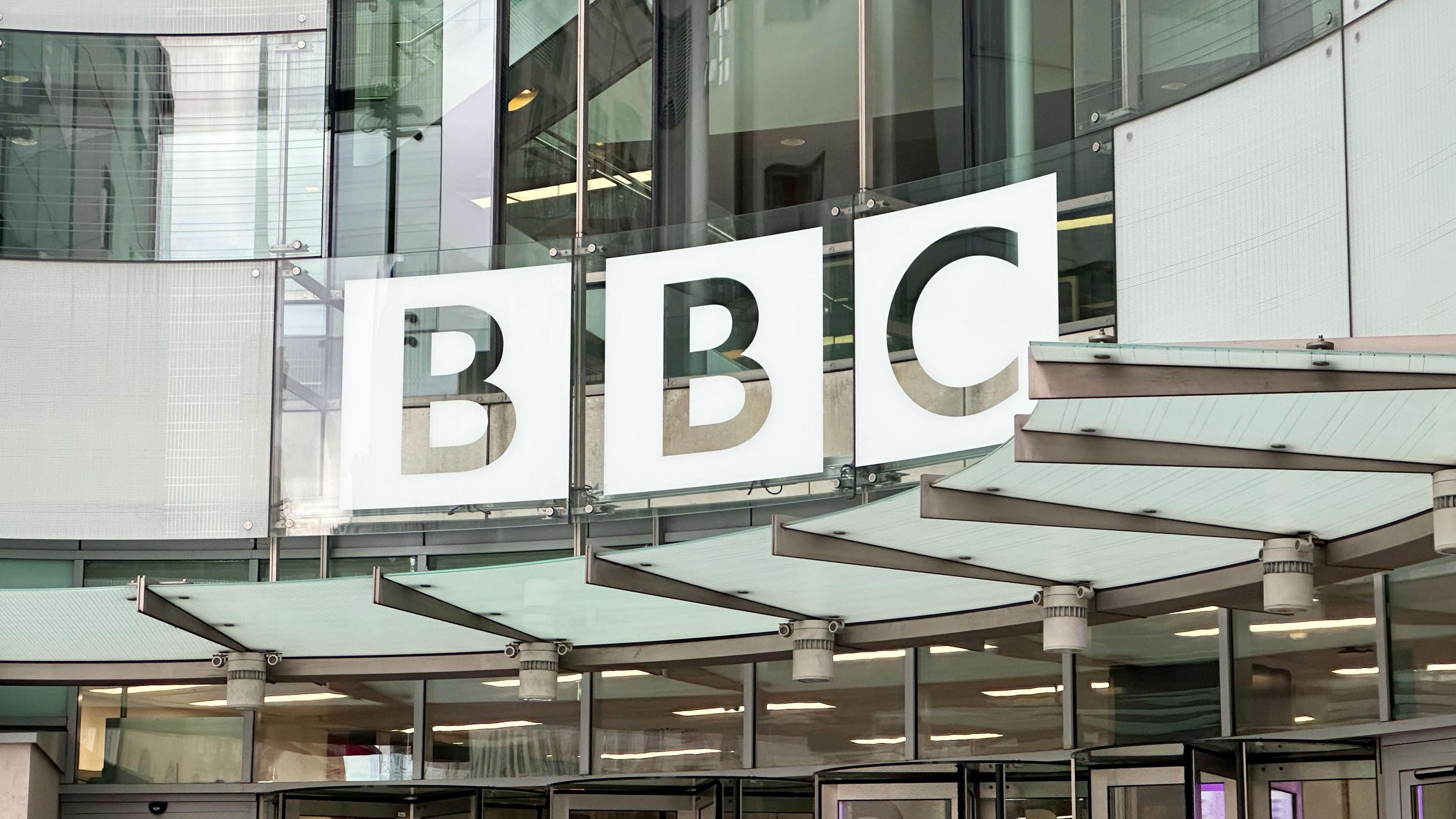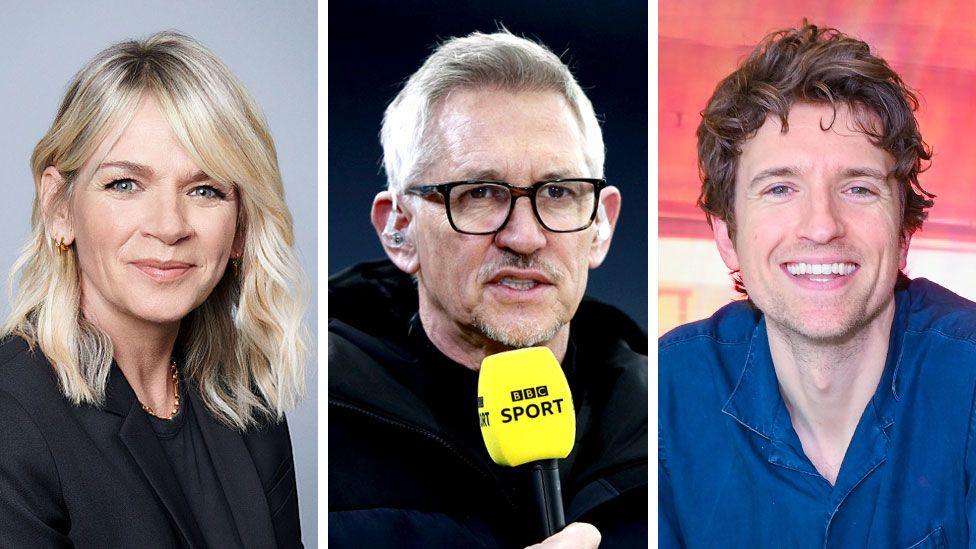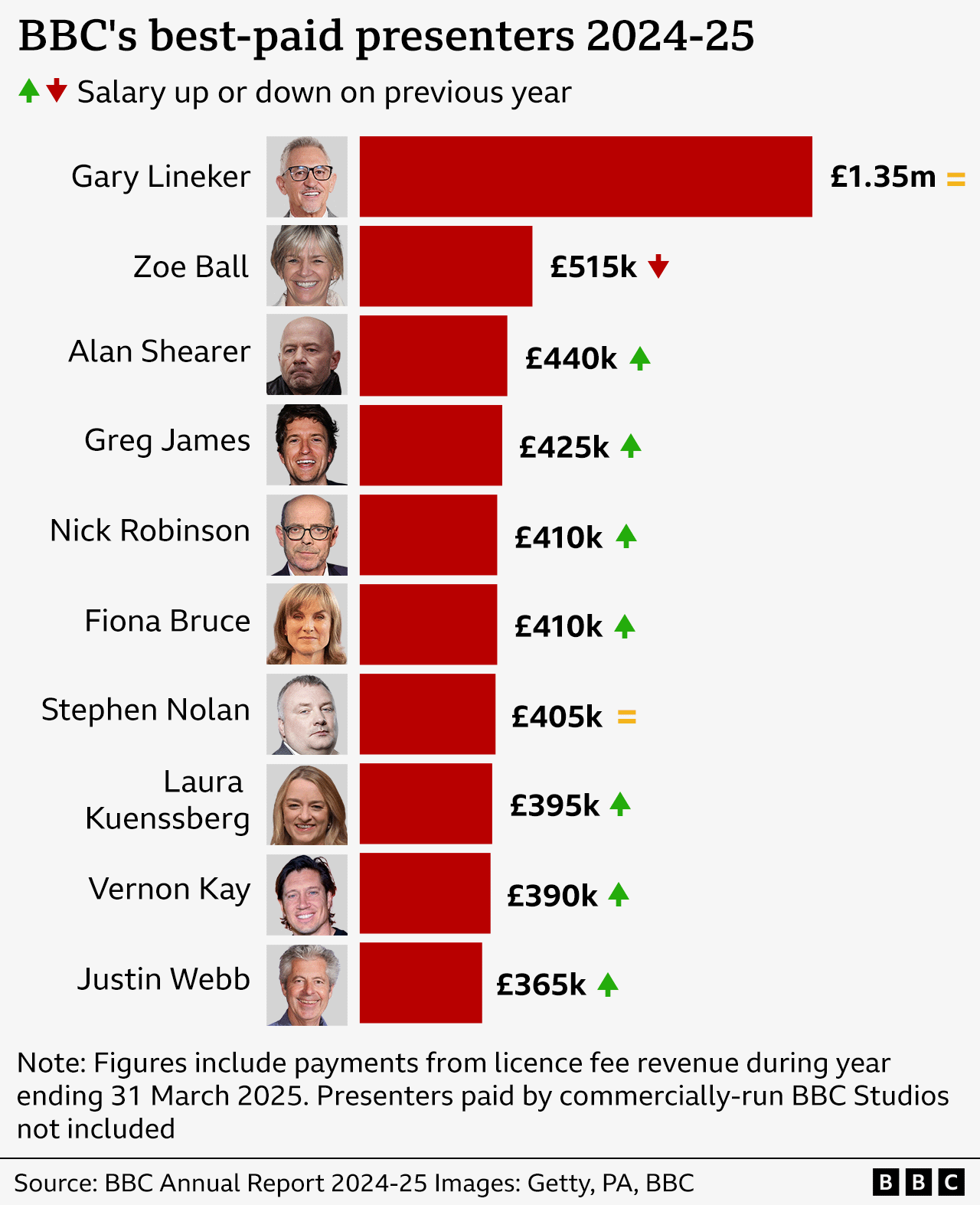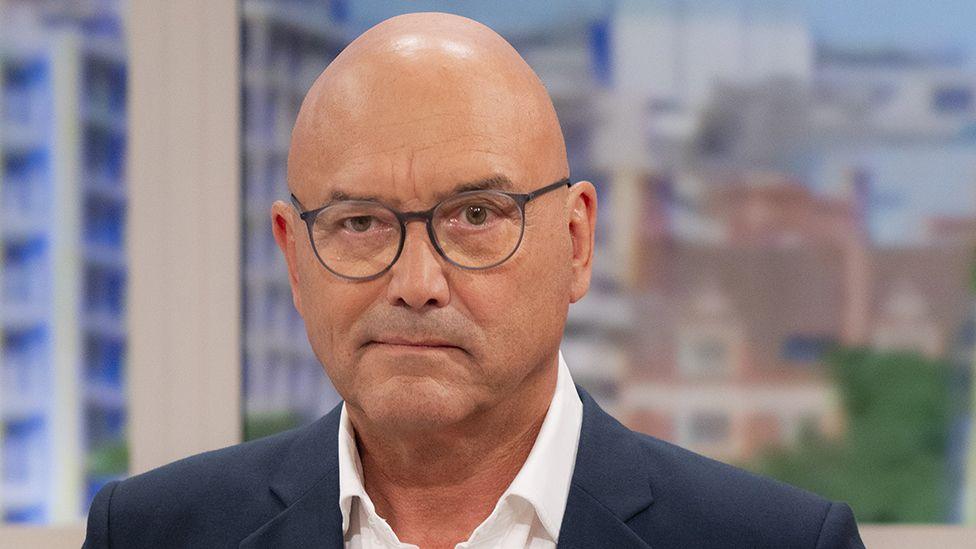BBC sacks several people over 'abusive behaviour'

- Published
The BBC has confirmed that several members of staff have been sacked following a recent review into the corporation's culture.
But Samir Shah, chairman of the BBC, acknowledged that some powerful individuals still make life "unbearable" for their colleagues.
His comments came as MasterChef was plunged into crisis, with a report on Monday upholding 45 allegations about Gregg Wallace's behaviour on the BBC show, and another against co-host John Torode of using racist language.
Shah was speaking as the corporation released its annual report. It revealed that former Match of the Day presenter Gary Lineker was the BBC's top paid presenter for the eighth year running.
Lineker earned between £1,350,000 - £1,354,999 in the last financial year, followed by former Radio 2 breakfast host Zoe Ball on £515,000 - £519,999.
Speaking as the report was released, Shah acknowledged that over the past year, there had been a "string of revelations" about abuses of power at the BBC.
"Our staff are dedicated, hardworking and treat each other with respect," he said.
"However, there are pockets in the organisation where this is not the case. There are still places where powerful individuals - on and off-screen - can abuse that power to make life for their colleagues unbearable."
He said people had been dismissed following the review, which came out in April, but did not give any more information about who they were.
Addressing the MasterChef controversy, BBC director general Tim Davie insisted the cooking show "absolutely" has a future, adding that it was "much bigger than individuals".
But he refused to say what would happen to the unseen series - which was filmed last year with both Wallace and Torode in it. Wallace has been sacked from the show.
Davie also did not comment on whether Torode would now also be sacked, saying that the production company Banijay was leading the process.
"The BBC, in some ways, we're quite simple on this, which is if someone is found to not live up to the values, we expect the independent company, Banijay in this case, to take action and report back to us on what they have done.
"These aren't BBC employees, but we absolutely expect action to be taken."
Wallace apologised after the inquiry reported back on Monday, while Torode said he had "no recollection" of the alleged incident, adding: "I do not believe that it happened."
Watch: Timeline of the allegations against Gregg Wallace
As usual, the BBC's annual report does not paint the full picture of what star presenters at the BBC earn.
A huge number are not listed because the corporation does not have to make public the salaries of stars who are paid through its commercial arm BBC Studios or via independent production companies.
Strictly speaking, the figures disclosed as part of the annual report are not "salaries" – but rather, relate to pay that individuals receive within the financial year.

(left to right) Zoe Ball, Gary Lineker and Greg James
Lineker signed off from his final edition of Match of the Day in May after 26 years in the hot seat. He had been due to remain with the BBC to front coverage of the men's FA Cup and the World Cup, but in the end, left the corporation completely after apologising for reposting a social media post about Zionism that included an illustration considered antisemitic.
His salary remained the same as last year's, while Zoe Ball's has dropped from the previous year's £950,000-£954,999, reflecting her departure from the Radio 2 breakfast show to take up a new role fronting Saturday afternoons on the station.
Lineker's salary is still included in the BBC's latest annual report as he's only just left, but next year he will no longer be listed.
Zoe Ball hosted her final Radio 2 breakfast show in December after six years in the slot, and took up her new Saturday afternoon role in May.
Elsewhere, director general Tim Davie's salary has gone up by £20k from last year (£527k) to £547k, representing a 3.8% pay rise.

The BBC's licence fee is set by the culture secretary.
This year income generated by the licence fee increased from £3.7 to £3.8bn after inflation.
The report stated there was a drop in the number of households paying the licence fee, from 23,131,000 in 2024 to 22,772,000 in 2025 - a drop of 359,000.
This represents a decline of 1.56%, compared with last year's drop of 1.26%.
That number is holding up fairly well, declining less quickly than might be expected given the competition from streaming services.
The report also revealed 50% of UK adults think the BBC is effective at providing impartial news and current affairs, an uptick of 5% on last year's 45% of those surveyed.
A further 63% of UK adults think the BBC is effective at providing accurate news and current affairs, compared to last year's 59%.
The number of adults using BBC services weekly last year declined slightly from 85% to 84%, though 70% of under 16s use BBC services including TV, iPlayer, radio and online content on a weekly basis.
Of those platforms, iPlayer is the fastest growing platform for long-form content.
The report also showed that 10 out of 10 of Christmas Day top shows were from the BBC - but that includes King's speech which is also broadcast on other channels.
The BBC's annual report comes in the wake of a series of controversies faced by the corporation. As well as MasterChef, they include Glastonbury and the decision to broadcast Bob Vylan's set.
Earlier this year, a documentary, Gaza: How to Survive a Warzone, was pulled from iPlayer after it emerged its 13-year-old narrator was the son of a Hamas official.
On Monday, a report concluded the documentary breached editorial guidelines on accuracy.
It stated the BBC bears "some responsibility" for "not being sufficiently proactive" in the early stages of the project, and for a "lack of critical oversight of unanswered or partially answered questions" - although the report said the independent film company behind it, Hoyo Films, bore the most responsibility for this failure.
Related topics
- Published8 July
